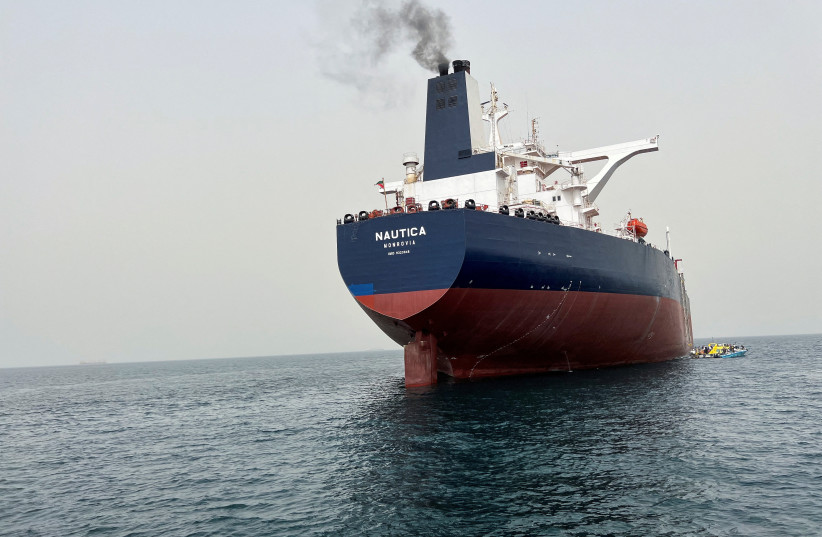The United Nations helped save the Red Sea from an oil spill in an operation that has been ongoing since May, according to UN Resident and Humanitarian Coordinator in Yemen David Gressly. In a video message this week, he thanked the salvage team for their work.
The FSO (floating storage and offloading ship) Safer was full of oil and sitting off the coast of Yemen during the civil war in Yemen, unable to offload oil or be serviced. The Safer is moored and was not meant to move, but it was full of oil that could leak. A leak could have done major damage to the Red Sea and Eilat’s coast.
The UN had spearheaded efforts to help offload the oil and switch the vessel with a safer one. Gressly was a key figure behind this and often provided updates on the mission. In July, he said a safe replacement for the Safer was supposed to begin transferring the oil soon. The replacement vessel was called the Yemen. The “Yemen safely berthed alongside the Safer,” Gressly said in July.
On August 11, the transfer was completed. Gressly said 1.1 million barrels of oil had been pumped out of the decaying Safer and moved to the Yemen.
“Great work by SMIT Salvage,” he said. “And thank you to all contributors and advocates that have brought us to this point!”

On Monday, he said the “SMIT Salvage team left Yemen today, marking the end of a key chapter in UN-led efforts to address the threat to the Red Sea posed by the #FSOSafer. The vessel is stabilized. The oil is safely stored. I look forward to further tremendous support from partners to finish the work.”
"I look forward to further tremendous support from partners to finish the work.”
David Gressly
At that point, Gressly also departed on Monday. He stood on the deck of the vessel Ndeavor, which had aided in the effort.
This marks a shift in relations in the region
The pumping of oil from the Safer is an important symbol. It shows how the UN can work with companies and countries to accomplish a goal. It is also part of the overall shift in the region away from war and toward diplomatic peace efforts.
Recent reconciliation between Saudi Arabia and Iran has helped paved the way for these efforts. Not long ago, Iran-backed Houthis threatened ships off the coast of Yemen, and Iranian IRGC ships also used the cover of commercial vessels to carry out missions. Today, the Red Sea is safer and more stable.
The Safer tanker had been basically stuck off the Yemeni Port of Hodeidah, where there was fighting. The tanker was abandoned and has not been maintained since the Houthis took control of the western province of Hodeidah in early 2015.
“The UN and the broad group of partners that support the Safer project have so far succeeded in preventing the worst-case scenario of a massive oil spill in the Red Sea with obvious potential catastrophic environmental, humanitarian, and economic repercussions,” UN spokesperson Stéphane Dujarric said.
“We are counting on further generous support to finish this critical mission,” he said.
The UN still requires an additional $22 million to carry out the second portion of the operation, Riyadh-based newspaper Arab News reported.
“Now, the Safer tanker poses no threat, and the new tanker is as good as any ship on the sea and does not require UN assistance,” Capt. Yeslem Mubarak, vice executive chairman of the Maritime Affairs Authority and acting head of the Safer National Committee, told Arab News on Tuesday.
UN Yemen Envoy Hans Grundberg went to Yemen this week also.
The Environment and Climate Change portal is produced in cooperation with the Goldman Sonnenfeldt School of Sustainability and Climate Change at Ben-Gurion University of the Negev. The Jerusalem Post maintains all editorial decisions related to the content.
